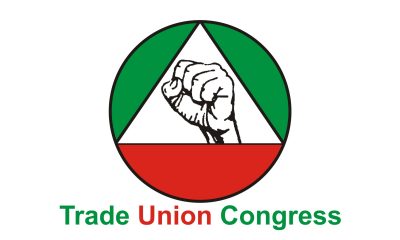Business
NIMASA Denies Granting Waivers To Foreign Shipping Firms

The Nigerian Maritime Administration and Safety Agency (NIMASA) has dismissed as false, allegations that it has been granting waivers to shipping firms.
It also refuted allegations of preferential treatment of foreign shipping companies in the shipment of petroleum products.
The Director-General, NIMASA, Dr Bashir Jamoh, made the clarifications during an investigative hearing titled ‘Urgent need to ensure strict compliance with statutory regulations and provisions regarding the Nigerian diving sector’, organised by the Senate Committee on Local Content.
The Ship Owners Association of Nigeria had petitioned the Senate, asking it to intervene in what the association described as ‘unfavourable treatment and injustice’ towards indigenous shipping companies, which gave undue advantage to their foreign competitors.
However, the NIMASA boss denied giving any waiver or preferential treatment to foreign firms.
He said that the agency lacked the power to grant waivers, while the Ministry of Transportation, which was empowered by law to grant waivers, had never granted any waiver for 15 years.
He said, “The operation of the Cabotage Act provides that NIMASA has the responsibility under Section 5 (2) to 5 (4) to process waiver and not to grant waiver. NIMASA never grants waiver, but only processes waiver.
“As the minister mentioned, if we process, we send it to the Ministry of Transportation for the minister’s consideration and approval; and to the best of my knowledge, for over 15 years, no minister has granted waiver.
“So, if the shipping companies or ship owners take waiver processing fee payment as waiver, we shouldn’t call it waiver. NIMASA doesn’t give waiver and I want anybody to come and present waiver given by NIMASA or Ministry of Transportation.
“In fact, even though the Act under Section 9 (12) gives the Ministers of Transportation powers to approve waivers, they don’t do so because they don’t want to encourage foreign vessels participation over local vessels.”
The Chairman of the Committee and former Senate Leader, Senator Teslim Folarin, cautioned against trading blames.
He said, “The whole essence of this investigative hearing is not to trade blames.
“We understand that they don’t have enough vessels; they don’t have capacity, but the capacity cannot come from heaven.”
Business
Lokpobiri Condemns Abandoned Refinery Project in N’Delta … Vows Revival
Business
FG Unveils Industrialisation Strategies In 2025 … To Conduct MSMEs Census
Business
Coy Strengthens Commitment To Nigeria’s Energy Future
-
Niger Delta4 days ago
NACAT Inaugurates South-South Office In A’Ibom Against Corruption
-
Sports4 days ago
AFCON: Eguavoen, Emenike predict S’ Eagles’ chances
-
Rivers2 days ago
Appreciate God, Elder Statesman Urges Nigerians
-
Business4 days ago
Bayelsa Recommits To Infrastructure, Sectoral Dev … Rakes In N227.185b From IGR
-

 Featured2 days ago
Featured2 days agoTUC Opposes FG’s Proposed Toll Gate On Federal Roads, Rejects Electricity Tariff Hike
-

 News2 days ago
News2 days agoBe Consoled, God Who Gives, Also Takes, Fubara Tells Principal Secretary
-

 News4 days ago
News4 days agoS’South Deputy Govs Pay Condolence Visit To A’Ibom Colleague
-

 Niger Delta4 days ago
Niger Delta4 days agoHYPREP Presents Scholarship Grants To 300 Ogoni Postgraduate Students

